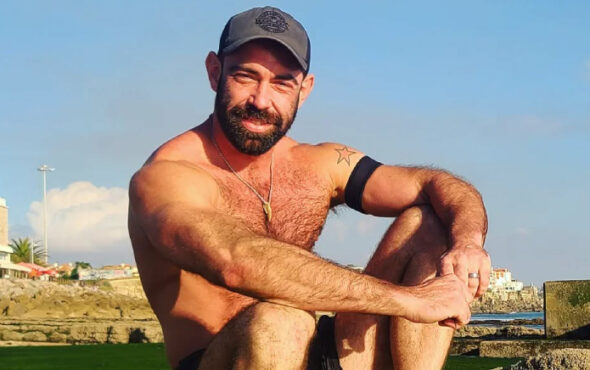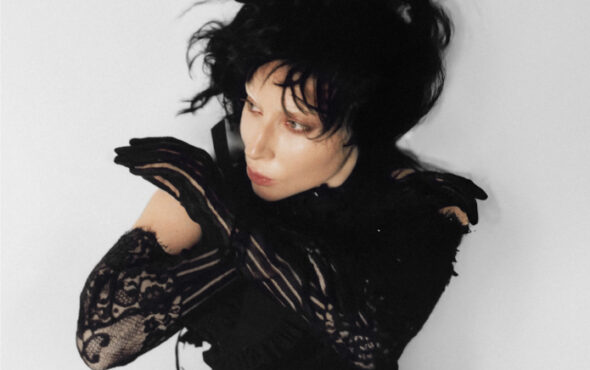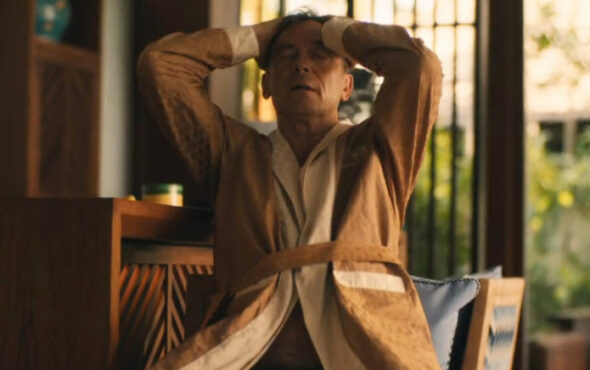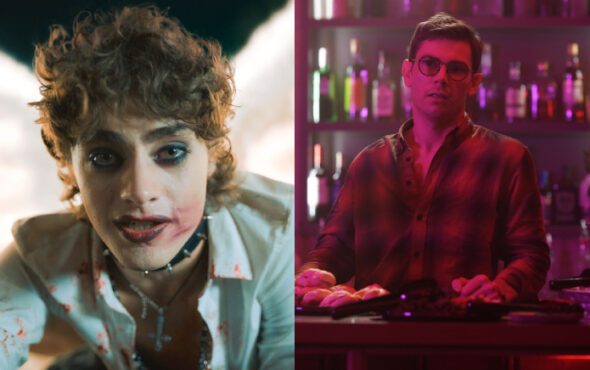
It’s essential to “reflect where we’re at” and continue to represent “the reality that queer people face” in mainstream media, says Fin Argus.
The actor and musician currently stars in the reimagining of Russell T Davies’ groundbreaking 1999 drama, Queer as Folk, which has been met with overwhelmingly positive reviews from critics for its more authentic portrayal of the LGBTQ+ experience.
While the script and performances of the cast have also been commended, Queer as Folk has, however, been mired in controversy.
The premiere episode of the series, which centres around the vibrant LGBTQ+ community in New Orleans, depicts a gunman opening fire at a gay club, Babylon, killing several queer patrons.
The remainder of the series follows a diverse group of friends including Brodie (Devin Way), Mingus (Argus), Ruthie (Jesse James Keitel), Julian (Ryan O’Connell), Noah (Johnny Sibilly) and Shar (CG), whose lives are transformed in the aftermath of the tragedy.
Premiering days before the sixth anniversary of the Pulse shooting in Orlando that claimed 49 lives and injured 53 more, as well as a few weeks after mass shootings in Buffalo and Texas, the storyline was met with polarised reactions by viewers and critics.
Argus addressed the criticism in an exclusive interview with GAY TIMES to commemorate the release of the show in the UK on StarzPlay, saying it’s “important, as artists and storytellers, to reflect where we’re at and to capture a moment in time.”
“This is supposed to be a modern look into queerness in America and I feel like it’s an accurate reflection. Growing up in America, I experienced a lot of homophobia and transphobia,” they explained.

“Even when we were filming in New Orleans, I was fearing for my safety.”
While Argus appreciates media that portrays a “queer utopia” without elements of anti-LGBTQ+ rhetoric and violence, they said it’s not the “lived experience of pretty much any queer person I know”.
The star also praised Queer as Folk for highlighting how the queer community can thrive in spite of violence and the various anti-LGBTQ+ bills that are being introduced in the US and worldwide, such as banning of trans athletes in sports and Florida’s archaic ‘Don’t Say Gay’ legislation.
“I think our show does a great job of bringing that to light, but still showing that, even though queer people experience trauma and think about their safety everyday, you can still live a life that’s full and happy and sexually fulfilling and liberating,” they said.
“It’s super important to show those sorts of stories and I’m proud of the way we did it.”
O’Connell, best known for starring and creating in Netflix’s Emmy-winning comedy series Special, said he “understands the conversation” surrounding the discourse of queer trauma in media, but is also “frustrated” by it.
“We’re feeling the reverberations of the first wave of queer storytelling, which often focused on people in the closet and a lot of tragedy,” he told GAY TIMES.
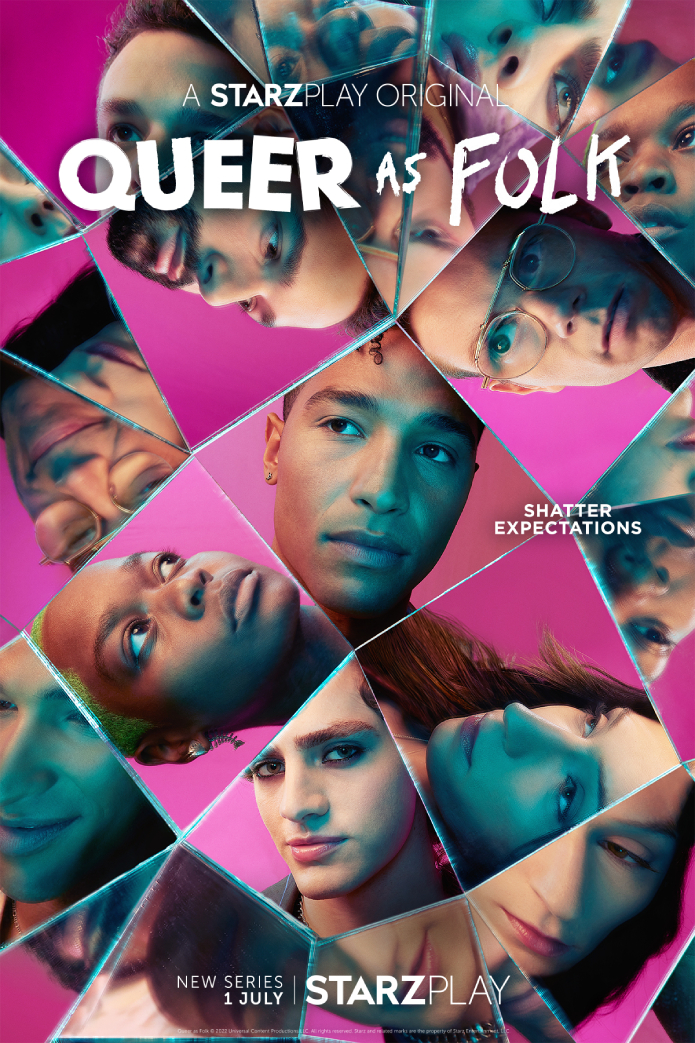
“By golly, a gay movie never ended without someone getting beaten by a baseball bat, so I understand there’s this need to separate from that and not focus on our trauma.
“I also think, historically, Hollywood only sees the value in our trauma because they want Oscars. So I understand this knee-jerk reaction of, ‘We’re done with that.’”
O’Connell, who also co-wrote the fourth and seventh episodes of the first season, then echoed Argus’ comments about the need to authentically “reflect” the LGBTQ+ community and its culture, because “there’s a lot of pain that has not gone away”.
“To me, it’s just about creating something that feels honest and authentic,” he continued.
“It’s so interesting how we demand from art this sanitised view of how things really are or existing in a binary of, ‘Things are good now.’ It’s not like that. That’s just not real life.”
Argus continued to tell GAY TIMES that they “love” the polarised reactions to the show and its characters, “because that means we’re saying something”.
“The thing I’m most excited about is that it does exactly what we set out to do: represent under-represented communities,” they explained.
“I’m so glad to see that people are seeing themselves represented for the first time and are appreciating the fact that they’re complicated and nuanced characters that aren’t just caricatures or palatable versions of queerness.”

“It’s really amazing to watch the discourse surrounding the show,” added O’Connell.
“I think people are very quick to label someone as ‘unlikeable’, which is so interesting. When we watch TV sometimes, we want things to be very binary. We want to know the villain is and who the hero is. We want it to be flattened out a bit.
“So, it’s interesting to see people call characters unlikeable because I’m like, ‘Honey, who the fuck are you? Are you completely likeable? Is anyone completely likeable?’
The first season of Queer as Folk also stars Juliette Lewis and Kim Cattrall, with Benito Skinner, Ed Bedgley Jr. and Nyle DiMarco in supporting roles.
The series is now available to stream in the UK on StarzPlay.

